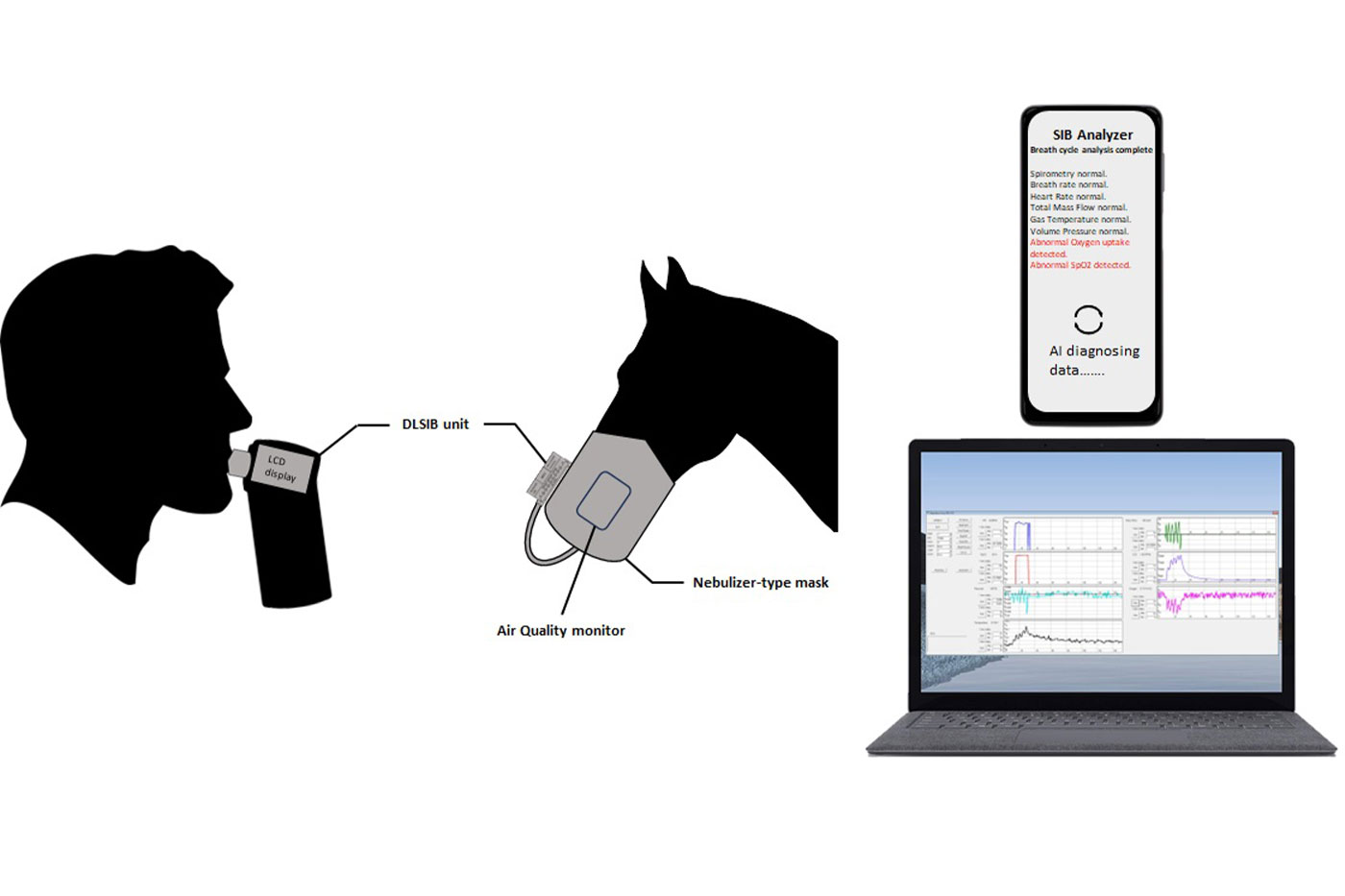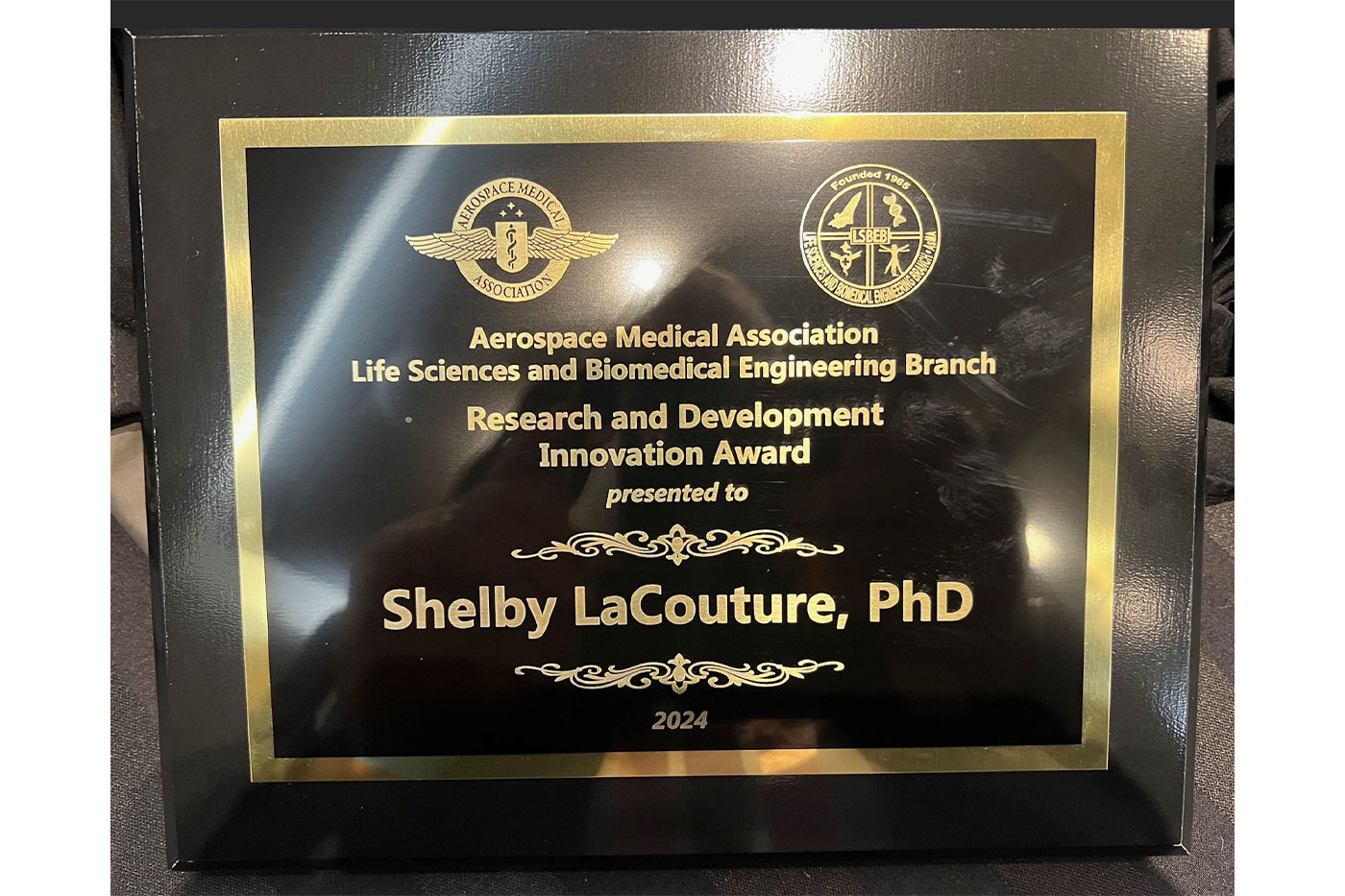Data-Logging Sensor Integration Block could be a game changer in delivery of real-time, life-saving pulmonary care.
The last thing Shelby Lacouture expected was to be recognized, much less honored, for his part in a project that started out as a job but has evolved into a true labor of love.
Lacouture (pronounced lock-a-toor) is a research scientist in the Department of Physics & Astronomy at Texas Tech University. One of the first things he clarifies is a lack of a physics background.
He is an electrical engineer by trade, and that expertise has made him an invaluable contributor to a technology that might one day become part of the standard of care in pulmonology treatment.
“I really believe in the work we are doing,” he said. “I think we can make a tremendous impact on the health of people, and that in and of itself is worth it.”
The project is the development of a piece of biomedical equipment called the Data-Logging Sensor Integration Block (DLSIB). The device is capable of monitoring respiratory status in real time and can also evaluate and diagnose patients in restricted environments, including space.

The DLSIB technology was co-invented by Texas Tech’s Robert V. Duncan, Annie Sobel and several others. Lacouture is part of the team in the Center for Emerging Energy Sciences. The project has been honored twice with the most recent recognition arriving early May in the form of a Research and Development Innovation Award from the Aerospace Medical Association. It also was honored with a Tech Connect Award in 2022.
“It’s very nice to see our own Dr. Lacouture receive this prestigious award, which is given to an individual who has demonstrated innovative research in the life sciences and/or biomedical engineering related to the design of development of aerospace medical equipment or systems,” said Sung-Won Lee, department chairman for Physics & Astronomy, in the College of Arts & Sciences.
“Dr. Lacouture is a truly brilliant researcher and inventor, and I am very proud of having him in our department. I would like to congratulate him on behalf of all my colleagues in the department.”

The DLSIB has been through several iterations over the past few years. In its most recent version, the device will log and provide real-time data on pulmonary functions such as mass flow, oxygen exchange, temperature, humidity and the rate of carbon dioxide exchange. The team is working to include a way to measure nitric oxide levels as well.
The concept originally took flight during the earliest days of the COVID-19 pandemic in 2020. The device could, in concert with other equipment like continuous positive airway passage (CPAP) machines, provide quick, reliable pulmonary system data for medical personnel.
Four years later, the vision is bolder and more robust, thanks to Laszlo M. Hunyadi, professor of large animal internal medicine with the Texas Tech School of Veterinary Medicine. The plan now is to expand the technology so it could also be available for horses.
“Dr. Laszlo has brought a new facet to our research, and it has huge ramifications,” Lacouture said. “We are working to develop a mask that monitors and records pulmonary functions as well as local air quality. The air quality measurements are of special significance here in West Texas with all of the animal farms and things animals can be exposed to.”
The team’s research has two primary thrusts. First is developing a device for human use, one small and portable enough so it could be part of a standard first assessment of a patient’s vital signs. In addition to measurements of blood pressure, temperature and heart rate, a pulmonary status update could be obtained. People would breathe into the apparatus several times, and respiratory issues could be identified quickly.
“If something were wrong, it could be caught early,” Lacouture said. “That’s important, especially with young people, where sometimes they get to a point that damage is hard to mitigate. That could be huge and have an impact around the world for people’s health.”
The second emphasis is how the technology can help animals, a project that aligns perfectly with Texas Tech’s One Health initiative.
“The pulmonary system of a horse is similar to that of humans,” Lacouture said. “There is a comparative medicine aspect to what we are doing in our research. This is the sphere of Dr. Laszlo, and we have several prominent physicians interested in working with us on the human aspect as well.”
Lacouture designs hardware and software for the device, including a highly sophisticated datalogger that takes measurements and interprets them almost immediately. He likens the process to new automobiles that message drivers about maintenance issues because of a network of interconnected sensors wired to a central unit.
“I am really very honored by all of this recognition,” he said. “Texas Tech is my alma mater, and these awards mean a lot to me. I am touched by them because they were completely unexpected, and I was like, ‘Wow, that is not why I do this, but it sure is nice.’”
The team’s research already has received Advanced Research Projects Agency-Energy funding, part of which is for one aspect of the system. Next steps include submitting grant proposals to other organizations that might be enticed by the work’s promise.
“My background is with pulse power and the Pulse Power Lab, and I enjoy all aspects of electronics,” he said. “I tell people I am a hobbyist who incidentally got his Ph.D. in it. I consider myself a good engineer who is very reactive while Rob (Duncan) is an inventor extraordinaire. We are kindred spirits, and I not only get to do my fundamental work, but I have the autonomy to be creative, which is invaluable to me. I love my job.”

